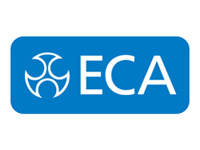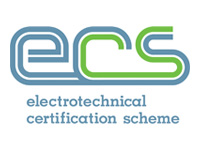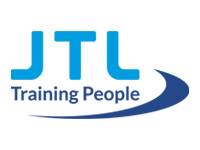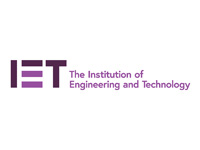Electrotechnical contractors in Wales are more concerned than employers elsewhere in the UK about shortfalls in workforce skills and qualifications as the sector prepares for the upturn in work necessary to deliver the nation’s net zero infrastructure.
Data from a new survey report commissioned jointly by ECA and JIB and published by The Electrotechnical Skills Partnership (TESP) suggests that nearly half of electrotechnical employers in Wales (44%) consider that a lack of suitable training courses is causing recruitment problems and contributing to Wales’ long-running electrical skills shortage.
Only 46% of Welsh electrotechnical firms said they were satisfied with job applicants’ skills, whilst just 43% agreed that current qualifications in Wales fully reflect the demands of the job today. These figures both fall well below equivalent satisfaction levels for electrotechnical firms across the UK as a whole (58% and 59%).
UK-wide, the latest TESP survey confirms a substantial rise in the number of electrical businesses involved in low-carbon work such as heat pump installations (15% in 2023 vs 7% in 2020), micro renewables (18% vs 12%), grid-sized renewables (11% vs 6%) and electrical performance certification (23% vs 3%). Wales generally scores more highly than the UK average as regards firms’ current capability with low-carbon technologies and their expectations of the need to grow this capability even more into the future. This level of commitment by Welsh electrical businesses almost certainly reflects the Welsh Government’s more proactive policies on net zero transformation, as demonstrated, for example, by the Net Zero Skills Action Plan, published in February.
ECA Director of Workforce and Public Affairs Andrew Eldred said: “Wales has a great opportunity to lead the way on skills for net zero. The concerns expressed by Welsh employers in this latest survey are a clear wake-up call for Government, industry and the education sector to work even more closely together to move further and faster from this point on.
“Yes, there are improvements that have to be made, and urgently. Electrical and other engineering services apprenticeships and qualifications in Wales need updating to incorporate more low-carbon and other new technology content; apprentice recruitment also needs to grow substantially, from an average of around 450 electrical starts annually to something closer to 750 starts each year, every year; and, colleges and Welsh Government need to work harder with trade bodies such as ECA to ensure SME employers in particular understand better the opportunities for training, including net zero upskilling training, that already exist.
“Crucially, the will and desire from industry to play its part and collaborate with Government and education providers is absolutely there, and in spades. ECA members, in particular, are showing the way through establishment of an Employers’ Skills Forum, which has already met and had positive exchanges with senior representatives from Welsh Government, Qualifications Wales and some of Wales’ largest colleges and independent training providers. The Forum’s objectives include ‘enhancing the size and capabilities of the electrotechnical workforce in Wales’ and ‘contributing to the implementation and success of Welsh Government’s Net Zero Skills Action Plan.”
Jay Parmar, Chief Executive of JIB, said: “The Welsh Government has made an exemplary commitment to renewable technology and it is fantastic to see the increase in electrical businesses getting involved in low carbon projects. By using a skilled and competent workforce, JIB members are already playing a crucial role in helping to deliver the Welsh Government’s net zero targets. JIB Members are ready to work shoulder to shoulder with Government to help them catapult and unlock the urgently needed green skills pipeline, while the JIB wishes to ensure there is a strong and joined-up approach to help unlock the potential in the region.
“From an ECS perspective, we are continuing work to align industry on the expectations for electricians upskilling into these areas of low-carbon technology to ensure these people have the right skills and experience, and crucially that clients and main contractors can easily verify this. It is common for awarding organisations to require people to hold an ECS gold card as an Electrician to access these qualifications which helps prevent a race to the bottom in standards. Many low-carbon qualifications are also being funded by the JIB Skills Development Fund to help encourage more Electricians and JIB member companies to provide these opportunities for growth and development in meeting net zero targets.”
Jeremy Parkin, Director of Welsh ECA Member firm Powerlink Electrical Services, and Chairman of ECA’s Employers’ Skills Forum, said:
“ECA members and the electricians and apprentices whom we employ are absolutely essential to a successful green transition for Wales. We were pleased to see Welsh Government’s recognition of this fact in their excellent Net Zero Skills Action Plan, and are looking forward to ever closer collaboration between Government, the education sector and ourselves to help make Wales’s green, electrified future a reality.”
The need for more skilled and qualified electricians is tied to the uptake of important low-carbon technologies such as electric vehicle charge points, solar PV and energy storage systems. Seven in 10 Welsh electrotechnical employers (71%) responding to the TESP survey said the lack of suitable electrical training is a barrier to the uptake and deployment of these technologies, harming the nation’s prospects of meeting its net zero carbon goals.
In response to the growing demand for low-carbon installations, Welsh employers are placing more importance than the rest of the UK on apprentice recruitment, with 60% saying apprentices are the key to bridging the skills gap, versus 47% of employers in the rest of the UK.







